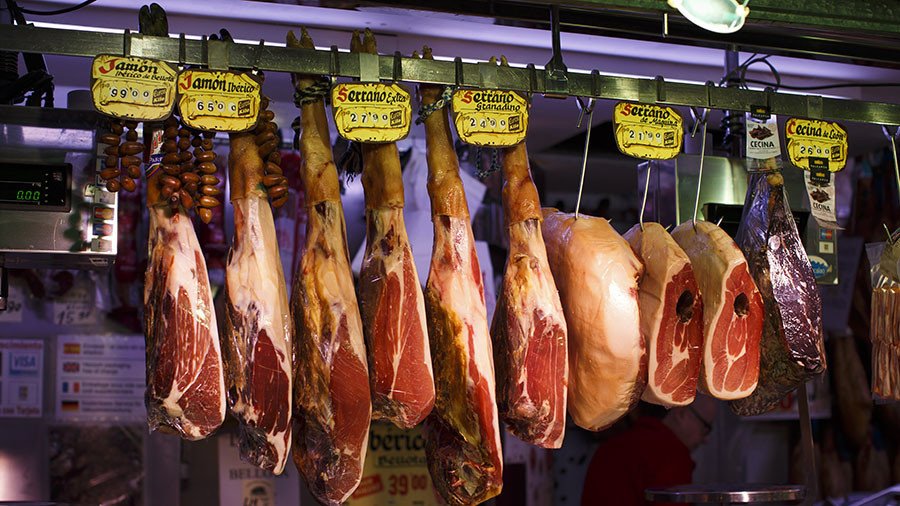Spain running out of jamon after Chinese develop taste for it, prices soar

Spain’s famous jamón ibérico (Iberian ham) may soon be harder to come by. Demand from Chinese consumers is about to outstrip supply, causing rising prices and difficulties for Spanish families ahead of Christmas.
Jamón ibérico – the culinary pride of Spain – has finally found its “right place in the market, alongside high-end caviar and truffles,” René Lemée, the head of exports for the Cinco Jotas brand, told El Pais on Saturday. He said that the economic crisis in Spain has pushed the country’s exports, allowing many people, the Chinese among them, to “fall in love with jamón ibérico.”
The problem is that gourmets are currently facing a shortage of the signature Spanish delicacy, Lemée says. An 8kg leg sells at €595 ($710).
Spanish ham comes in different varieties, but Chinese connoisseurs are said to go for the finest type – jamón ibérico de bellota. This ham is from free-range pigs that roam wild oak forests (dehesas) and eat only acorns for several months before being slaughtered. The highest quality ham is cured for at least 36 months.
Not only are there limited areas of dehesa forest along the border of Spain and Portugal. One pig requires over one hectare (2.5 acres) to fulfill its basic needs. After the animal is slaughtered, the pigs’ legs are soaked with salt to be dry-cured for at least 2.5 years.
“The price in Spain will rise by all means,” Roberto Batres, the director of Shanghai de Delaiberia Gold – which exports ham, wine, and olive oil to China – told the newspaper. “The companies licensed to sell [ham] to China don’t have enough jamón de bellota to meet Chinese demand.”
But when one door closes, another opens. Hoping to meet the demand, the Chinese have started importing raw frozen Iberian pork to cure the meat at home. They have even established a ham-cutting school and a professional association in China. “That’s a sign of how far the product has penetrated the local society,” Batres said.













